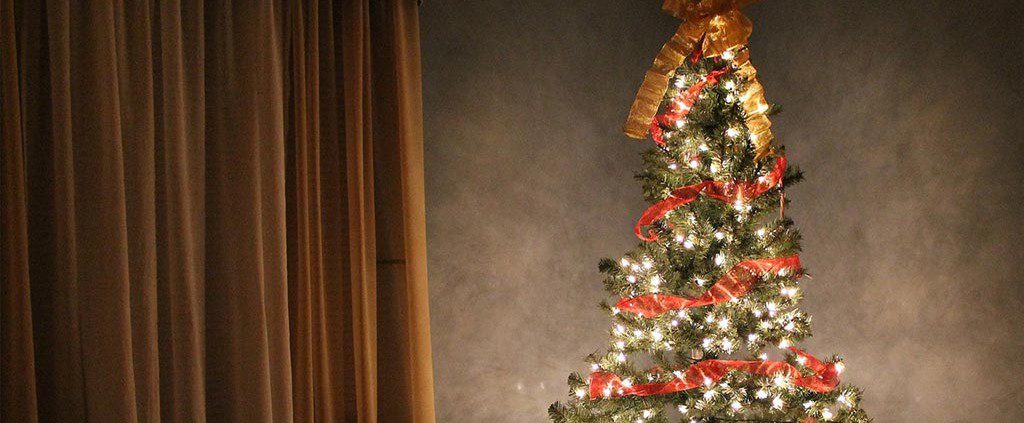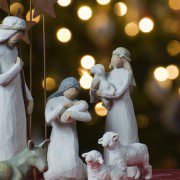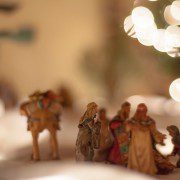Why I Set Up A Christmas Tree Every year
Written By Karen Kwek, Singapore
I’m fussy when it comes to Christmas trees. I like mine a certain way—no less than six feet (1.8m) tall, boughs filled out with green needly foliage, handmade ornaments, and twinkling (not flashing!) lights.
Never mind that I live in a tropical country and it’s an artificial tree. Never mind that as “tree fashion” goes, mine is a humble affair of mismatched decorations with sentimental value, not a color-coordinated glamour fir. Never mind that in about a month’s time I’ll have to pack everything away in boxes again, where it will remain untouched for the next 11 months. It’s all worthwhile because for my family, nothing says, “Here comes Christmas!” quite like putting up our tree.
Where do traditions like this come from? Before Christianity, people were already bringing evergreen branches into their homes during winter, to remind them of the coming spring. The decorated tree as we know it seems to have originated some 400 years ago in Germany, when Christians adopted it as a symbol of the everlasting life that Jesus brings. Traditions develop as a way of remembering and retelling important news or events. Christian traditions have developed alongside—sometimes replacing, sometimes transforming—non-Christian customs and rites. Whether we realize it or not, what we do at Christmas nowadays is probably a unique blend of our culture and the habits we’ve grown up with.
For someone in England, for instance, a traditional Christmas Day dinner usually begins around mid-afternoon and includes roast turkey or goose with stuffing, roast potatoes, brussels sprouts, hot tasty gravy, mulled wine, and mince pies or Christmas pudding (are you hungry yet?). In many parts of the United States, wintry scenes of fresh snowfall are more picturesque than any greeting card, and neighborhoods show off festive yard decor featuring reindeer or snowmen. One of my West Coast friends bakes fudge and Christmas cookies every year as gifts. In Australia, where December is a summer month, people love Carols by Candlelight, an annual outdoor carol concert that has taken place in major Australian cities across the country for the past 70-plus years. The outdoors is so popular with Aussies that my Sydney friend’s Christmas dinner is a seafood barbecue—on the beach!
So, if there isn’t one definitive way of celebrating Christmas, what makes it really Christmas for you? There was a time when I celebrated the season like the world does, as just another festival with its own stories and characters like Santa Claus and Rudolph the Red-Nosed Reindeer, another occasion for gift-giving and partying, and another excuse for warm fuzzy songs and decadent food.
But Christmas is so much more. The word itself is derived from “Christ’s mass”, that is, the feast day commemorating the birth of the Christ or Messiah, a title for God’s Chosen King. This title signifies that God has given Jesus authority over everything, to bring back to Him a world that doesn’t know Him or doesn’t accept His rule. The result of turning our backs on God is separation from Him forever. But God sent Jesus into the world to take that punishment in our place—a baby born to die—so that we can live. At the heart of Christmas, then, is the great news of friendship, a living relationship, with God Himself! “Here is a trustworthy saying that deserves full acceptance: Christ Jesus came into the world to save sinners . . .” (1 Timothy 1:15).
The real message of Christmas isn’t in any of our traditions per se, and so, merely observing traditions doesn’t make us Christian. No, Christians are people who have a relationship with God through His Son Jesus. Even wonderful Christian traditions like carol services, Advent calendars and nativity plays can become empty shells of activity if we fail to grow and delight in our friendship with God.
On the other hand, if what we do expresses a healthy relationship with God, over time such practices can come to symbolize much more—that’s when a meaningful tradition is born. My Christmas tree and the act of setting it up, for example, has come to represent togetherness. Each handmade ornament came from an Advent devotion activity, and the tree has graced countless gatherings where we shared our food and our faith with friends and family.
Would it still be Christmas without the tree? You bet! In my heart it’s Christmas all year round. But because I can choose how to celebrate 25 December (or 7 January if you live in a country where the church is Eastern Orthodox), I’ll pick my traditions with care, and own them. What about you? What are your Christmas traditions? Which ones best create the opportunities to remember, share Jesus with others, and pass on the good news of joy?










Trackbacks & Pingbacks
[…] 此文章譯自雅米英文網站 […]
[…] 此文章譯自雅米英文網站 […]
Leave a Reply
Want to join the discussion?Feel free to contribute!